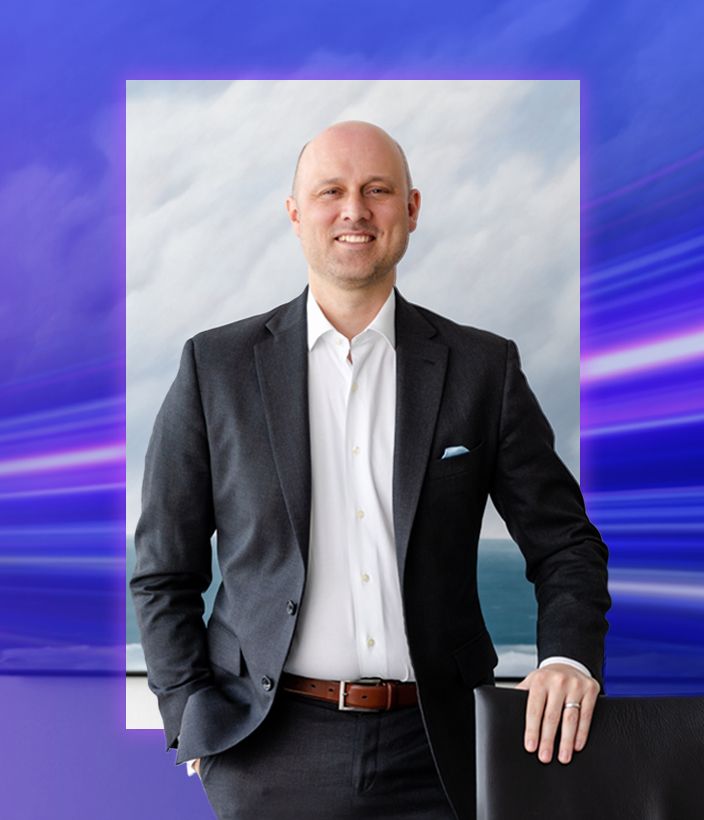Make the difference hub › Our People › Thomas Davies
“Our clients have amazing people working for them, but they are frequently stretched with many roles and responsibilities. KPMG Managed Services can help organizations of all sizes when they need us most – when they have the resources and when they don’t."
Thomas Davies, Partner, Cyber Security and Risk Consulting Managed Services National Lead, KPMG in Canada talks to us about making the difference by helping clients build, optimize, operate and transform their risk-related functions using a managed services model.
What challenges are you working to solve in your role?
Thomas Davies: Focus and capacity continue to be amongst the greatest struggles of most organizations. Even very well-structured and resourced organizations can benefit from outsourcing tasks and functions and building more capacity within internal teams, recognizing that no team can do it all – whether because of time or capability.
The pace of change continues to accelerate, increasing the volume and complexity of work – without expanding the time available to do it. This means many workers are not able to move away from daily tasks to focus on the transformational change bringing innovation, quality improvements and impact.
I see such amazing talent in client organizations, but they are frequently stretched with many roles and responsibilities. Even the organizations that can afford additional headcount often find challenges with filling roles due to talent shortage in the market – for example in cyber or regulatory-related professions.
KPMG Managed Services can help clients redirect some of this workload to a KPMG team as the third-party provider, freeing the capacity and budget for innovative and transformative efforts.
Can you explain how managed services work in practice? Where do you see most impact?
Thomas Davies: The managed services concept involves the client tasking a KPMG member firm with building, optimizing or operating selected processes on their behalf.
I lead the Risk Managed Service function which specifically looks at processes related to risk – such as cybersecurity , identity verification and ESG reporting.
The core benefits for organizations come from the scalable nature of support provided by the KPMG network. Using managed services brings predictable cost, predicable outcomes, and reporting and insights that could be hard for the client to achieve on their own.
For me, the most transformative aspect is the knowledge sharing and empowering the amazing people who work at the client organizations. In my role at KPMG in Canada, I see first-hand how managed services projects result in the development of clients’ talent and capabilities.
What have you been working on recently?
Thomas Davies: I have been working on a Managed Detection and Response service, offered by KPMG in Canada to clients looking for day-to-day monitoring and tools required to stay ahead in the cyber space. KPMG professionals will monitor a client’s cyber infrastructure and activate a response in the event of an incident, such as a breach.
This helps to free up the time for a client’s own Cyber team to collaborate with us on more innovative aspects of cyber security, such as enhancing their defences and learning industry best practice.


What is the link between managed services and talent development?
Thomas Davies: Sometimes, on a managed services project, clients’ employees may get concerned about functions being removed, or roles being outsourced.
Ultimately, it is the role of managed services to help with process improvement, and really quality of life improvements for those employees.
Many employees will tell you that their jobs are stretched far too thin. They're being asked to redirect attention on an ad hoc basis, which is really a struggle for them to deliver the outcomes and the performance they're hoping for.
Managed services should be a retention tool of key talent, not a reduction.
What makes a transformation effort successful in your view?
A success story that I'm particularly proud of was working with a client who was initially supported on a so-called ‘time and materials’ basis – KPMG in Canada colleagues were essentially seconded to help the client drive key functions at a time where they struggled to resource internally.
KPMG team members embedded in the client organization observed that work processes were not set up optimally, impacting consistency and speed. This is was a deep-rooted issue that secondees alone couldn’t fix.
Ultimately, the client needed a broader team and a focused outcome, which is exactly the managed services model. This approach enabled the client to optimize their processes, resulting in a higher quality deliverable, in less time, at a predictable cost – rather than continuously plugging the talent gap.
This has had great success at this organization and we've been able to continue to build out those outcomes for that client.
What’s next for you in your role?
Thomas Davies: More BOOT! Build. Optimize. Operate. Transform. That’s what KPMG Managed Services is all about.



